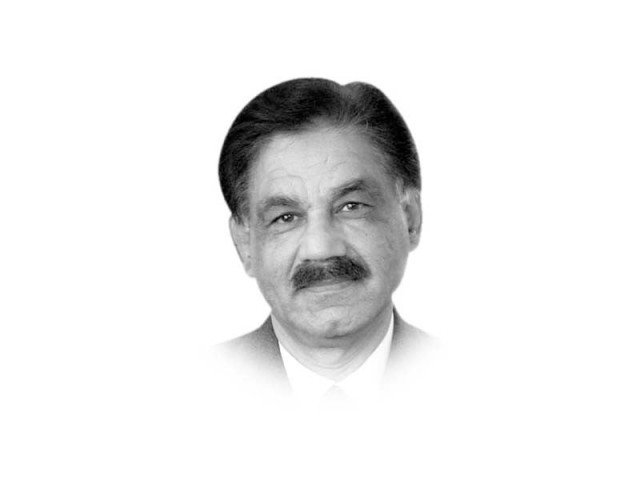Maturity of the collective will of the people
The outcome of the July 17 bye-elections, however, has entirely changed this desolate political milieu

A few days ago, there was a widespread mood of gloom and doom across the country. We Pakistanis seem to have acquiesced to the current design, deformity and dysfunction of the governance system orchestrated by corrupt politicians and a handful of men in uniform. There was general disillusionment for being a part of a shattered, disoriented society that has accepted frivolity, avarice and mediocrity as core norms — where merit, intellect, integrity and honesty are non-existent, irrelevant traits. There was no remorse or repentance for bartering the scales of justice; for dancing to the tune of masters; for recurrent articulation of sophisticated doctrines by the wrong doers who defied and defiled their Constitutional oath; and for legitimising the illegitimate. Perhaps a messiah, descended from the heavens, will one day emancipate the people from the tyranny and oppression let loose by the rulers.
The outcome of the July 17 bye-elections, however, has entirely changed this desolate political milieu. A glimmer of hope and optimism has appeared on the horizon. The expression of ‘collective will’ by the people has brilliantly established the strength of their political maturity and laid bare the frailty of the political theatre — which includes actors such as the judiciary, the election commission, the military establishment and the government apparatuses. The entire nation needs to felicitate Imran Khan for having achieved the landmark victory and re-fashioning the future political destiny of the country. There are indeed a good number of reasons to applaud Khan and his compatriots.
First, Imran Khan — as a resolute, determined and fearless political leader — stood firm and steadfast all alone against unprecedented odds and continued with his crusade against corrupt, self-serving mainstream parties. Secondly, never before in the history of Pakistan has the popular ‘will of the people’ so vigorously been mobilised to successfully challenge the might of the establishment. Thirdly, on a broader spectrum, the politician ensemble needs to rejoice and celebrate in that the political process, through free exercise of popular will and right of self-determination, has paved way for the establishment of much awaited civilian supremacy over the military establishment.
It also appears that the army has ultimately realised its folly and gravity of its recent adventures in the political arena. The future course of events will, of course, manifest the sincerity of their intent, if or not they have decided to withdraw and disengage from their incessant praetorian proclivity. Needless to emphasise that a high degree of moral and patriotic courage is required to vanquish institutional ego and forego the deeply entrenched sense of superiority.
It is for the politicians now to seize this historical moment, transcend their narrow self-seeking interests, and join hands together to define a roadmap for the future political course of Pakistan. The road ahead is difficult with many stumbling blocks, formidable and daunting challenges, and deeply ingrained socio-political complexities characterised by alienation, exclusion, disempowerment and disenfranchisement. A national narrative that is expressive of the collective vision of the nation — its aspirations, values and norms — needs to be articulated a priori to form the fundamental framework of the state.
Pakistan was founded on an ideological basis, with Islam defining its fundamental values of justice and equality. The Quaid envisioned a democratic, progressive and inclusive Pakistan to secure the religious, cultural, economic, social and political rights of its citizens. His compelling motto of ‘Unity, Faith and Discipline’ provided the guiding principles of Pakistan’s nationhood. Unity, transcends the narrow confines of ethnicity, race, creed and sectarianism and which protects national integrity and ideology. Faith, in the sovereignty of the Almighty and in the will of the people. And Discipline, of people and institutions to not violate the sanctity of the Constitution; discipline of thoughts to pursue a constructive discourse in all spheres of life; and above all, discipline of actions to abide by the rule of law and respect others rights.
Pakistan has a rich legacy that has evolved from the world’s most ancient civilizations. The intrinsic strengths and defining elements of its people include resilience; capacity to recover quickly from difficulties; survivability and ability to continue to exist; creativity to be innovative, inventive and solution-oriented; and social affinity. What more a nation could yearn?
The foremost challenge for politicians is to develop, through national consensus, a narrative that ensures democratic order, good governance, constitutional supremacy and rule of law — to maintain peace. It must embody a commitment to sustainable economic development based on equity, pluralism and inclusiveness. It must, above all, present Pakistan as a sovereign country dedicated to building a just global order.
Khan has already prescribed a shared vision, duly validated by millions of Pakistanis. All throughout his campaign, he vociferously advocated that: the true spirit of Islam be adopted as a fundamental imperative through the Riyasat-e-Madinah model; decisions be taken based on national interest through his “absolutely not” stance; constitutional supremacy and good governance be upheld; corruption and nepotism be done away with; and concerted efforts be made on poverty alleviation and social justice. Credit must be given to him for having unleashed the collective energy of the people from all segments of society.
If politicians fail to capitalise on major gains in the political space and the tradition of political engineering and manipulation continues unabated, there will be real disastrous consequences for the country and its people, especially for the generations to come.
Published in The Express Tribune, July 30th, 2022.
Like Opinion & Editorial on Facebook, follow @ETOpEd on Twitter to receive all updates on all our daily pieces.
















COMMENTS
Comments are moderated and generally will be posted if they are on-topic and not abusive.
For more information, please see our Comments FAQ